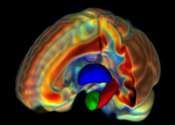How stress might be the root of problems like pain, ulcers and a broken heart
The English actor Kate Beckinsale recently lost her stepfather. She experienced such intense grief at the loss that it "burned a hole" in her esophagus, causing her to "vomit copious amounts of blood." Beckinsale spent six ...
Jul 25, 2024
0
2









